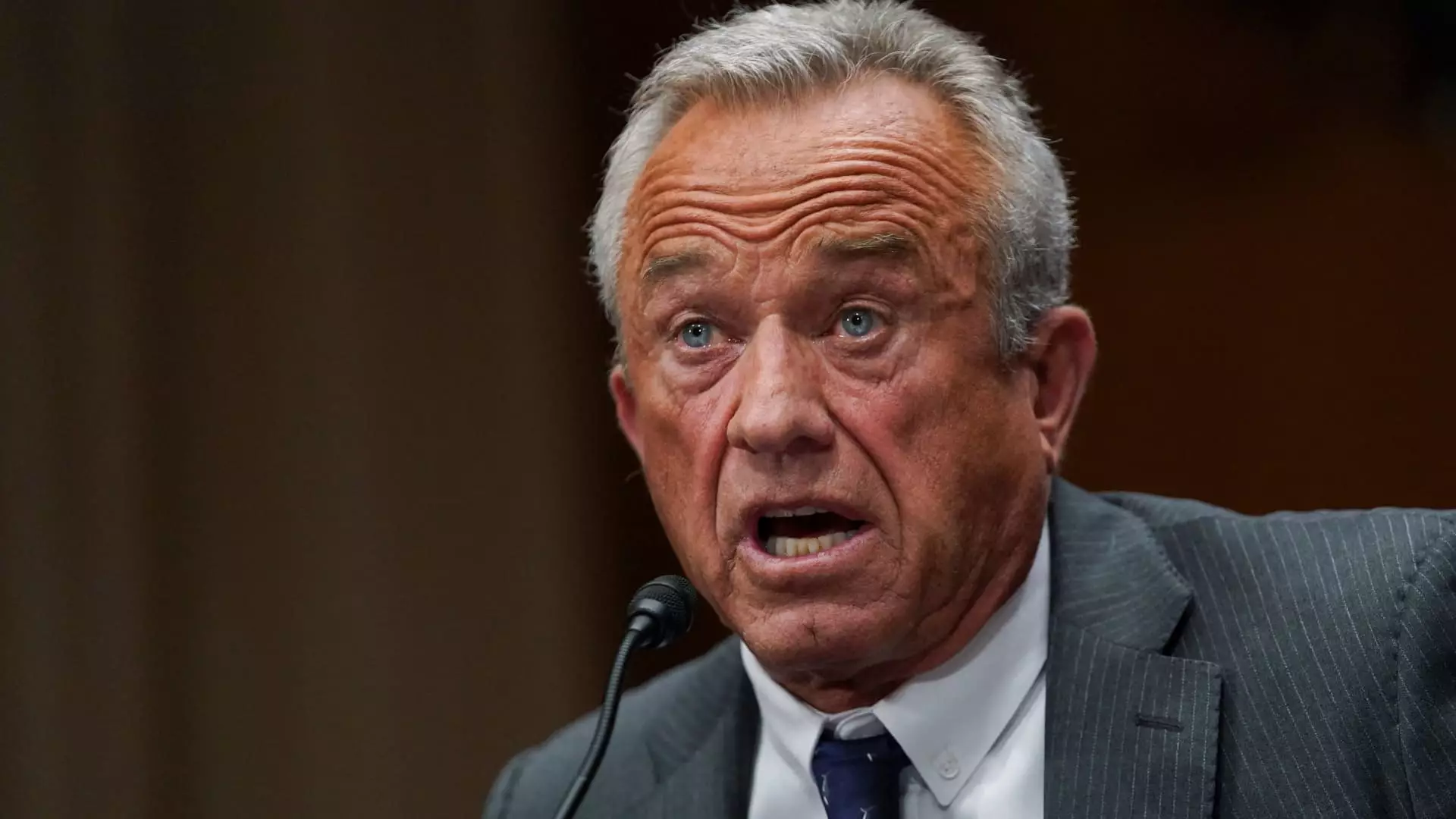As Robert F. Kennedy Jr. undergoes scrutiny for his nomination as Secretary of Health and Human Services (HHS), significant gaps in his understanding of crucial healthcare programs have emerged, raising serious questions about his suitability for such an influential role. During his recent Senate confirmation hearings, notable for their challenging questions from both sides of the aisle, Kennedy’s responses indicated a troubling lack of familiarity with key aspects of Medicare and Medicaid. This inefficiency to grasp the intricacies involved in managing a $1.7 trillion agency is concerning, especially given the enormous responsibilities tied to overseeing health care for millions of Americans.
Kennedy’s committee hearings hold substantial weight, as they determine not only the path forward for his leadership but also the potential impact on the future of federal healthcare policies. If confirmed, Kennedy would oversee the Centers for Medicare and Medicaid Services (CMS), a critical component of the government’s healthcare framework that provides essential services to vulnerable populations. With Medicare serving millions of elderly and disabled Americans and Medicaid assisting low-income families, knowledge of these programs is not merely academic; it is practical and vital to informed decision-making.
Senator Maggie Hassan’s pointed comments underscored this sentiment when she told Kennedy, “You want us to confirm you to be in charge of Medicare, but it appears that you don’t know the basics of this program.” The implications of this statement reflect broader concerns among lawmakers regarding Kennedy’s preparedness for the HHS role.
Kennedy’s difficulties in articulating the functions and coverage associated with different parts of Medicare warrants particular scrutiny. Questions from Hassan about the specifics of Medicare Parts A, B, and C revealed a lack of clarity in his responses. For instance, when he described Medicare Part A as “mainly for primary care or physicians,” he misconstrued a program specifically designed for inpatient hospital care. Similar oversights continued, casting doubt on his ability to handle the intricate details of healthcare coverage essential for policy-making.
The confirmation hearings also revealed Kennedy’s apparent confusion between Medicare and Medicaid, further compounding concerns among committee members. The two programs, despite sharing similarities in their goals of providing health coverage, operate under distinctly different frameworks—Medicare primarily serves the elderly and disabled, while Medicaid is designed for low-income individuals, funded jointly by federal and state governments. The mischaracterization of these two pivotal programs raises alarm bells for politicians and citizens alike.
Debate surrounding Kennedy’s confirmation sheds light on the potential ramifications for healthcare spending and policy direction. Republican members of the Senate have shown interest in reforming or possibly slashing Medicaid funding as part of broader tax legislation, emphasizing the importance of appointing a leader at HHS with a nuanced understanding of these sensitive budgetary discussions. Misleading statements about financial underpinnings—such as describing Medicaid as “fully paid for” by the federal government—unveil the risk of policy responses that are not adequately informed by fiscal realities.
Following his Wednesday hearing, Senator Ron Wyden suggested that Kennedy was “unprepared,” indicating that the other member’s assessment of Kennedy’s comprehension of federal healthcare programs was not only critical but also shared. This consensus underscores a pressing concern: if those tasked with approving Kennedy’s nomination lack faith in his capacity to navigate the complexities of these programs, how can he expect to effectively manage them?
The ongoing deliberations concerning Robert F. Kennedy Jr.’s nomination for HHS are not simply about his fitness for the role but point to a larger dialogue about the standards of preparedness required for leadership in healthcare. Given the magnitude of the decisions impacting millions of Americans, oversight during the confirmation process must serve as a thorough check on candidates. In an era where healthcare remains a pivotal political issue, ensuring that leadership displays both a comprehensive understanding of existing programs and a readiness to address their challenges is essential. The implications of lackluster preparedness are profound, potentially jeopardizing crucial healthcare services for the most vulnerable segments of society.

